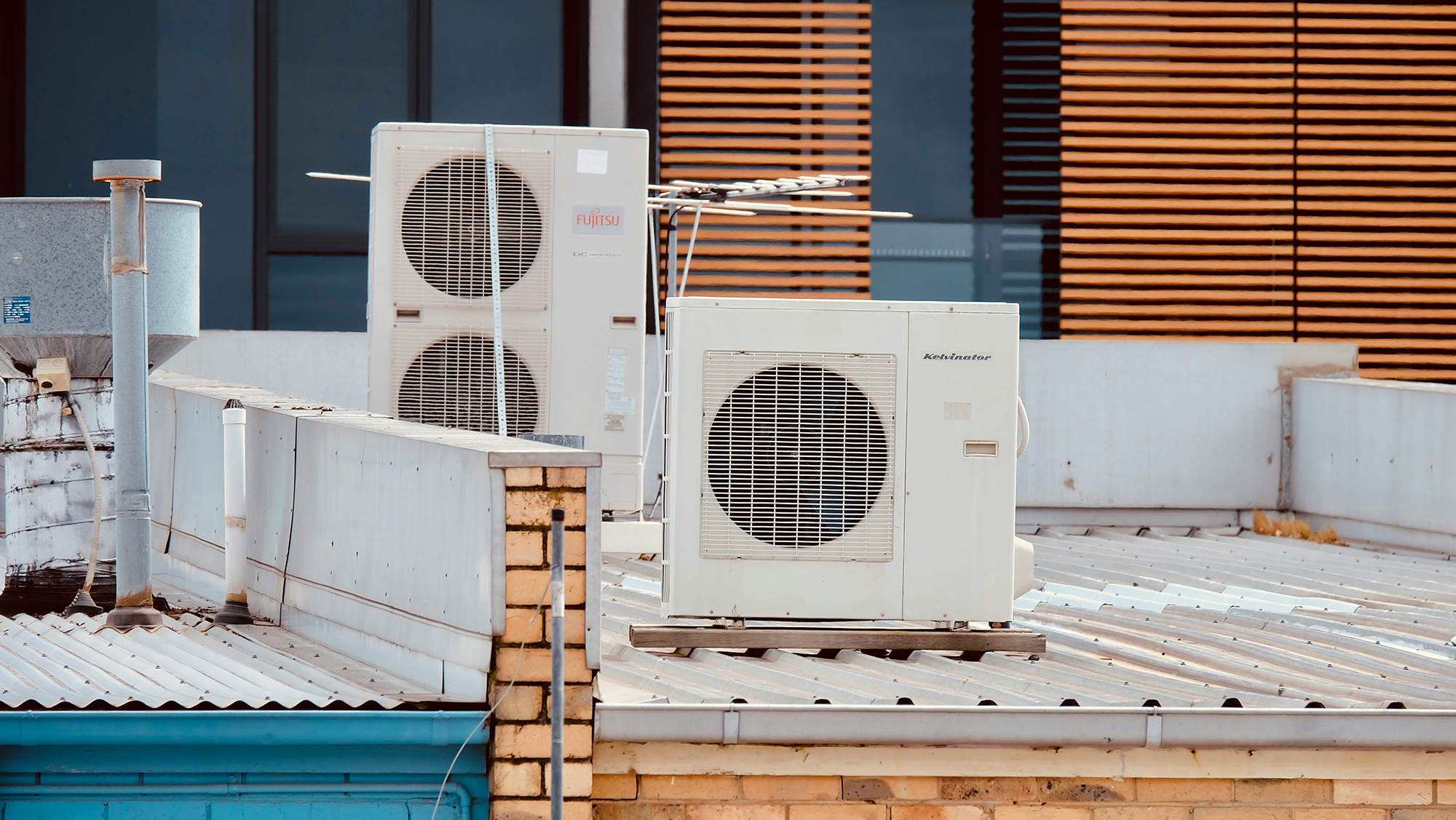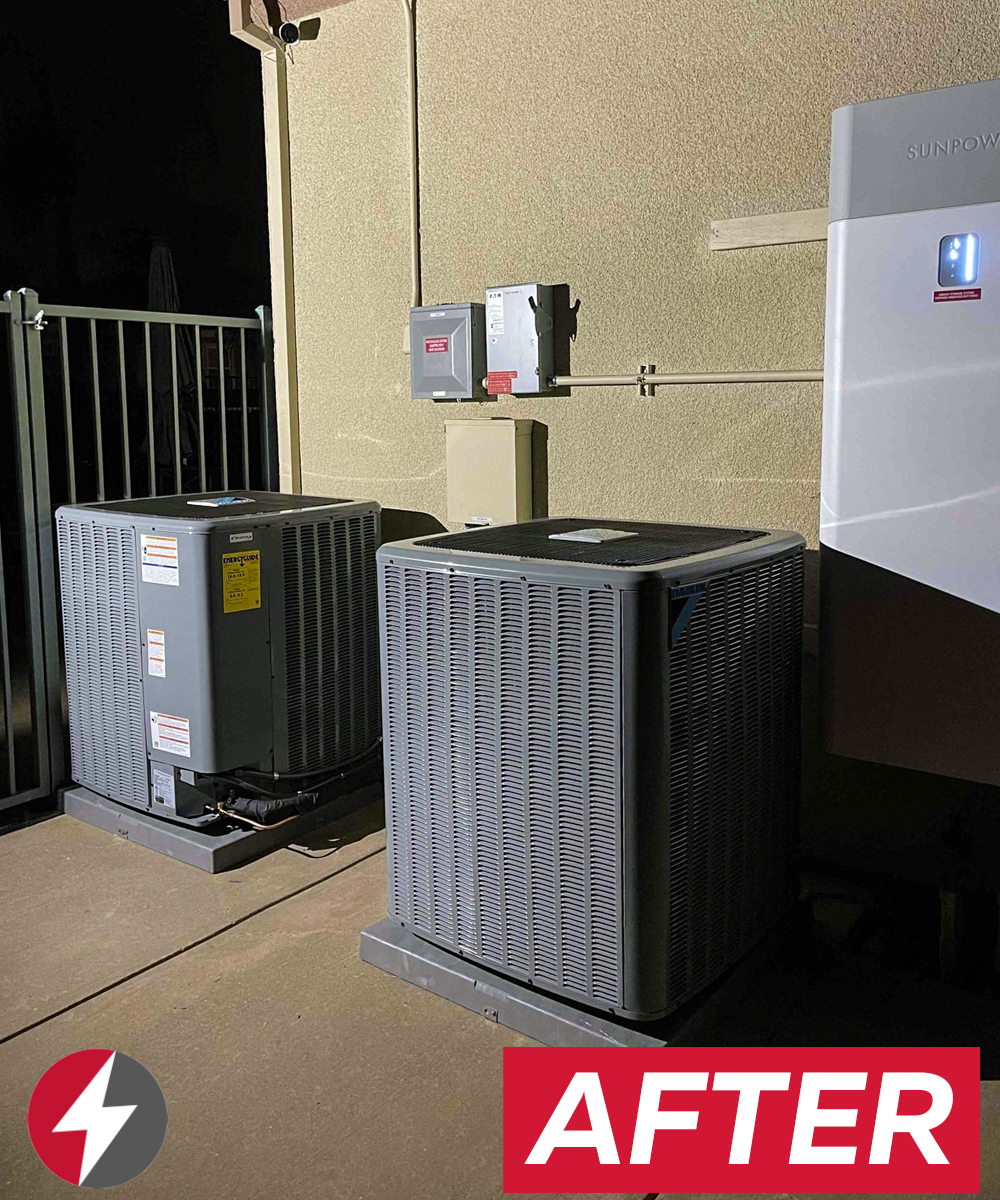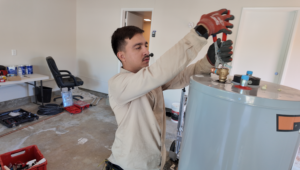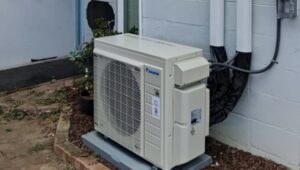Efficiency becomes very important as the summer heat waves set in and the electricity bills go through the roof. Next to heating, air conditioners rank among the highest electricity consumers in any household, even more for constant users like those placed in locations where the climate requires it. The paper discusses the very vitality of energy efficiency in an air-conditioning environment and provides a pretty useful insight into how cost-saving can be done with optimized AC units, enabling environmental sustainability.

Understanding Energy Efficiency in AC Units
Air conditioning energy efficiency is the cooling efficiency an AC unit gives per unit of electric power it consumes. The main measures of efficiency are the Energy Efficiency Ratio (EER) and the Seasonal Energy Efficiency Ratio (SEER). EER measures the constant temperature ratio of cooling capacity (in British Thermal Units—BTUs) to power input (in watts). SEER measures the efficiency in the entire cooling season for different temperature conditions.
The EER and SEER ratings are measures of the efficiency of the air conditioner. Modern units usually come with SEER ratings ranging from 13 to 21, and larger figures denote the machine will perform better while saving energy. It would help consumers in making an informed choice while purchasing a new AC unit to ensure the model they buy meets their energy savings and budget requirements.
Benefits of Energy Efficient AC Units
Now, if you were to get an energy-efficient unit for your AC, would it not be wonderful? Some of the most evident advantages include:
- Reduced Energy Costs: A benefit to the environment and the pocket, since an energy-efficient air conditioner consumes less power to provide an equal amount of cooling that less competent models do.
- Environmental Benefits: These units consume less power, thus requiring a corresponding reduced demand from power plants. In turn, it reduces the amount of carbon dioxide and other harmful emissions released into the atmosphere in general.
- Enhanced Lifespan of the System: Most of the present-day energy-efficient AC models are designed with enhanced technologies that help in both electricity conservation and minimizing wear and tear while the model is operational. This means less number of repairs, lower costs for maintenance, and longer unit life.
Key Features of Energy Efficient AC Units
Energy-efficient air conditioning systems have many important features, and they will assist with decreasing the energy consumption while still maintaining the performance. Some of the most critical technologies and features are mentioned below:
- Inverter Technology: The interference equipped units continuously adjust the compressor speed for the correct temperature. This means, therefore, that it consumes less energy and hence assures a more constant room temperature.
- Prophylactic insulation and sealing of ducts: Prophylactic insulation of ducts helps in complementing the AC unit while in use. In case of leakages, losses are incurred because the cooled air leaks out before reaching the area that it was targeted to cool inside the house.
- Smart Thermostats: These can highly help in increasing efficiency in the air-conditioning unit through automatic temperature adjustment, which is directly related to your everyday routine and preferences. It has the ability to access remotely; hence, it will be convenient to set the temperature of your home right from your phone.
Choosing the Right Air Conditioner
Selecting the right AC unit for your house is more than simply choosing the most energy-efficient model. It includes a few of these considerations:
- Size of the Unit: One should take a lot of care with their selection of appropriate sizes for his or her AC unit. One that is large will consume much energy and, on the other hand, fail to remove humidity from the air effectively, hence making the environment less comfortable.
- Professional Installation: The set-up of your AC unit really does make all the difference in having it work at top efficiency. Having your unit professionally installed, according to the manufacturer’s specifications and within local codes, by a certified professional is highly recommended.
- Energy Efficiency Ratings: Always compare EER and SEER ratings when shopping for different models. A highly rated unit may cost you more money upfront, but it will save you a fortune in energy over the long run.
Maintenance Tips for Optimal Efficiency
As with any other human, regular care will ensure the continued efficient performance of your air conditioning unit. The following will help guarantee maximum performance:
- Do Your AC Unit a Favor: Clean and Replace Filters Regularly. Dirty filters reduce airflow of any system and bring down efficiency by about 15%. Clean or replace your AC unit’s filters every month or two during the season for better efficiency and air quality.
- Seasonal Checks: Schedule a full inspection and service of your unit with a professional before the top AC season to make sure all components are working properly.
- Common Problems in the Operation of the Air Conditioner: Common signs that you may look up to are: strange noises, cooling at different sections of your house, and energy bills rising unexpectedly. These are a few issues that, when dealt with at the right time, will prevent bigger problems occurring later on.
Future of AC Technology
The future will be more efficient and, in fact, will bring more environmental benefits. These are some of the innovations likely to define the future of cooling systems:
Solar-Powered AC Units: In the system, the AC runs directly on solar power through the photovoltaic cells or indirectly through the operation of conventional AC units with less consumption of fossil fuel.
Geothermal Cooling Systems: Geothermal cooling systems use the earth’s constant temperature to provide another efficient choice for cooling and heating. The savings of energy and low maintenance costs are meant to be quite dramatic in certain cases.
Smart and connected systems: With the large development of the Internet of Things (IoT), air conditioners are set to be a part of more integrated home energy systems. The next generation of air conditioners will make optimal use of energy by ascertaining and evaluating the prevailing conditions of real-time pricing, weather forecasts, and behavioral patterns of homeowners.
These would increase not only the efficiency of the energy but also the comfort and control to the user—likely revolutionizing the way we cool our ambient environments for decades to come.
Conclusion
The energy efficiency in the air conditioning will not only save energy bills but also contributes to a sustainable future. Homeowners can significantly minimize their environmental footprint by hiring AC units maintaining staff who keep their equipment energy-saving, thereby ensuring a comfortable indoor climate.
In order to improve the performance of your air conditioning system, do the following:
- Choose the unit: Invest in an AC unit that has a high SEER or EER rating to best fit the size and demand of your space.
- Maintain Regularly: Ensure that you conduct regular maintenance to have the system running at the best level of performance, such as cleaning filters and professional inspections that are scheduled.
- Innovate: Stay abreast of new technologies and emerging trends in the air conditioning industry, as such trends could contribute to higher energy efficiency.
When we give prime importance to the energy efficiency of air conditioning, we should not only assure our comfort but rather be a part of the broader attainment towards sustainability of energy. Investing in energy efficiency is pocket-friendly and earth-friendly, whether you are upgrading to a more efficient model or optimizing your current system.






